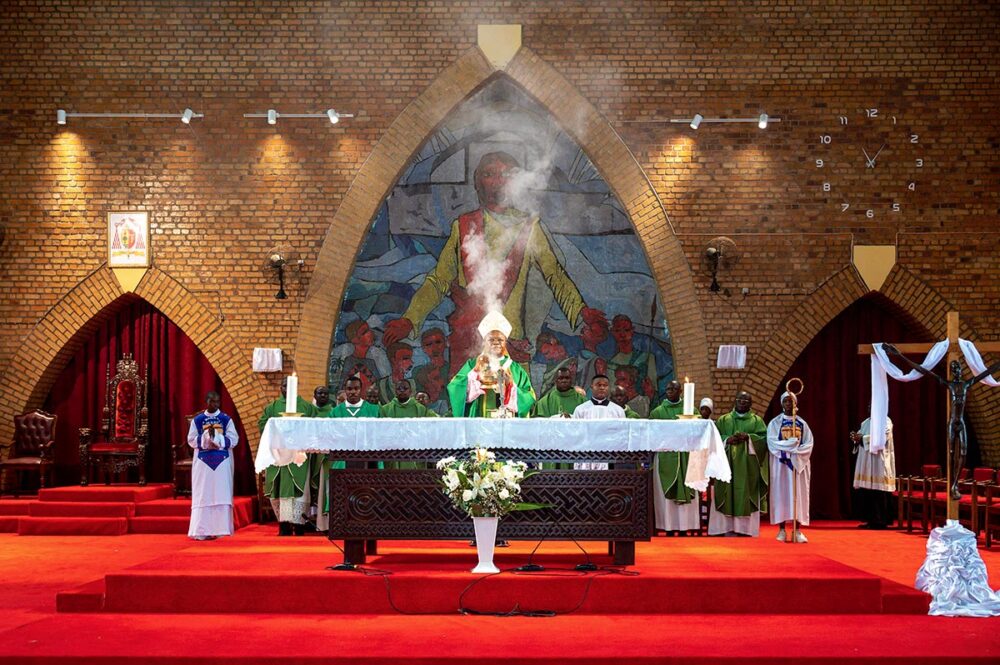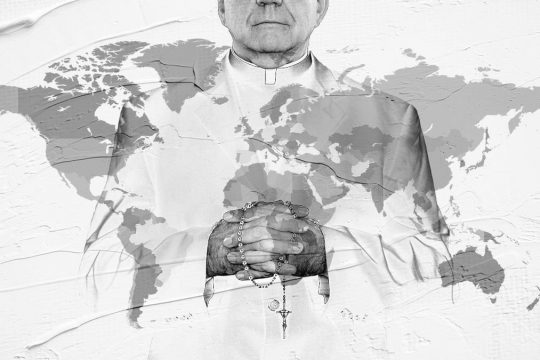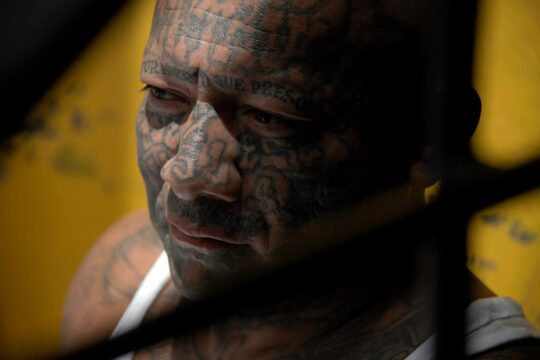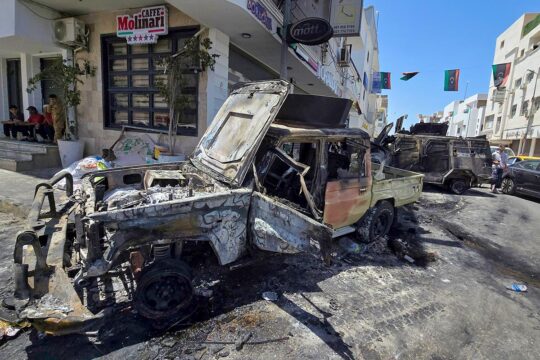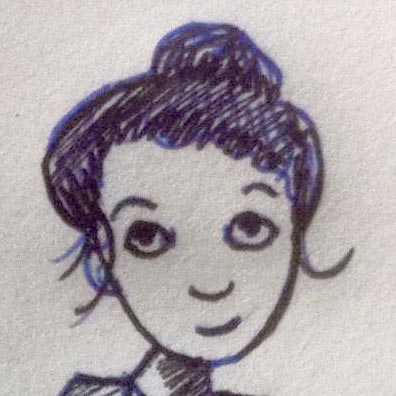JUSTICE INFO: What do we know today about sexual violence in the Catholic Church in Africa? What work, research or commissions can give us an idea of its scale?
STEPHANE JOULAIN: I was once asked this question: when will there be a CIASE [Independent Commission on Sexual Abuse in the Church, which sat in France between February 2019 and October 2021] for Africa? I replied that France is a small country that undertook to conduct this commission at a cost of several million euros, and Africa is a continent of 54 countries. We can’t expect something of the same magnitude, which would require a huge investment -- especially on a continent struggling with war, malnutrition, endemic and systemic poverty. Combating sexual violence in the Church is not a priority for most African countries. There is no global data on victims of sexual assault in the Church in Africa. There are journalistic investigations into this or that case, but not on a large scale. There’s a lack of data, because African countries are faced with both a lack of resources and a lack of will to study the phenomenon.
With regard to violence against children, governments have ratified the Charter on the Rights of the Child. Development aid is conditional on respect for children’s rights, so some countries have made efforts to address the issue of sexual violence in society. There are many studies on this subject. But investigating the Church itself is far more difficult for various reasons, the main one being the weight of the Church in African societies.
What are the obstacles to tackling this issue?
There are several powerful obstacles. First of all, in Africa the Church is perceived as a major centre of power, and even as a political counterweight in some countries. In many African cultures, clerics are untouchable figures of authority. There’s pressure on victims and families from society itself not to sully the name of the institution, because it defends rights, for example. In some African countries where the Church has a political dimension, any media coverage of sexual crimes involving clerics will be seen as a political attack. As a result, many people don’t say what has happened to them, because they won’t be believed or listened to.
Secondly, in many countries, if a man claims to have been sexually assaulted by a priest, it is very taboo. The man would be accused of being homosexual. African sexual morality is deeply marked by heterosexuality, machismo and patriarchalism. Abusing a child doesn’t fit with this image. To put it simply: it is just not done. And, in fact, it leads to deep denial in entire societies.
I have observed that the polymorphism and idealization of the African family hinders disclosure. The African family structure is not the mononuclear family of Europe, but polymorphic, extended by definition; the family includes cousins, uncles, aunts and so on. If things aren’t going well at home one day, you can go knock on your cousin’s door, they say. From a very early age, children develop the idea of belonging to this extended family which, depending on the culture, may be matrilineal or patrilineal – and it becomes a safety net in fragile societies. The African family remains the place where people belong, where they develop great respect for seniority and learn very quickly to submit to adult authority. In other words, elders are not criticized, even when they are abusive. This adds layers of denial.
In addition, Catholic theology has developed the idea that the Church in Africa is the “family of God”. This means that when you’re a priest, others have to submit and say nothing. Finally, I’d say there are geopolitical reasons, with the emergence of new pan-Africanisms impacting religious life and the life of the Church. I’m thinking of Cardinal Ambongo’s statements in Kinshasa, for example, to the effect that homosexuality does not exist in Africa. When this same cardinal of the Church, a very close advisor to the Pope, says publicly that he shares values with Vladimir Putin [President of the Russian Federation], we can see that there is this desire to radically sever colonial ties with Europe.
You provide a lot of sexual abuse prevention training to religious congregations on the African continent. Do you feel that things are progressing?
I can see that the word is slowly getting out. Six months ago, in Nairobi, I had 125 trainers in front of me. Those who spoke up all said “yes, abuses exist here”. It’s already a big change to no longer be in denial. In Kenya, it’s difficult for priests to go to the police to report something. I explain to them that the Sexual Offence Act and the Child Protection Act, two laws in Kenya, include an obligation to report to the legitimate authorities. But they are afraid. Why are they afraid? Because going to the police in Kenya isn’t necessarily the best solution, you risk ending up in prison yourself because you have filed a report. It’s worth noting that recently a bishop in Eldoret (western Kenya) reported one of his priests to the police for allegedly abusing a 10-year-old girl. Criminal proceedings are underway. I can see that, little by little, prevention training is bearing fruit.
What is the Church putting in place in Africa?
The Association of Member Episcopal Conferences in Eastern Africa (Amecea) has done a great deal to raise awareness on the issue of victims. At the Vatican, a drive has been made to get churches on the African continent to take a close look at these issues. For example, an effort is being made via the Pontifical Commission for the Protection of Minors to ensure that episcopates are equipped with prevention policies, protocols for intervention and codes of conduct. In the Kenyan bishops’ conference, for example, Kenyan bishops have been asked to draw up their own diocesan policies.
Anglophone countries are increasingly equipping themselves with these tools. In French-speaking countries, it’s a bit slower. I recently went with my Central Africa congregation to Burundi, where we drew up a policy, protocols and codes of conduct for the DRC, Burundi and Rwanda. We’ll be doing the same for southern Africa in the summer of 2025, and then for West Africa next year.
When the silence starts to break, what is your intuition about the scale of abuse on the continent?
When it comes to sexual abuse of under-age boys by priests, Africa won’t be on the same scale as we have seen in Europe or North America. That is my humble opinion, in view of the sexual morality I mentioned earlier. Or it could be the result of European missionaries who came to work in Africa. This is not anecdotal, by the way, and the floor needs to be opened on the issue. On the other hand, I think the real subject concerns young girls, children and teenagers, as well as adult women and nuns. Sister Mary Lembo (a Togolese nun from the Congregation of the Sisters of St. Catherine of Alexandria, based in Rome) wrote her thesis on the abuse of nuns. This is a very important piece of work that could get things moving. This subject also requires societies to evolve, because as long as telling what happened remains a source of shame for victims, people will not speak up.
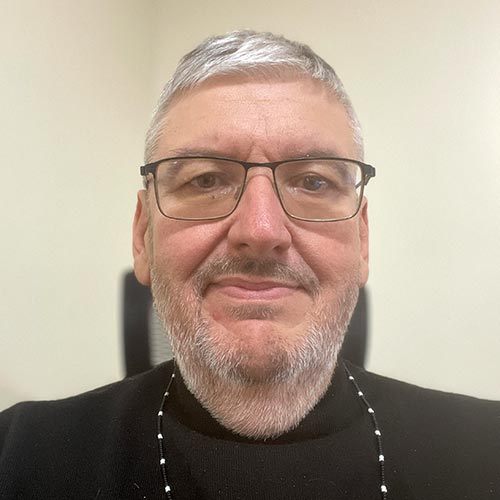
Stéphane Joulain is a Catholic priest and member of the Society of Missionaries of Africa (White Fathers). A professor at Saint Paul University in Ottawa (Canada), he is now clinical director of the Bethany Centre for Healing and Renewal in Kenya. His publications include Combattre l’abus sexuel des enfants (Desclée de Brouwer, 2018) and L’Église déchirée. Comprendre et traverser la crise des agressions sexuelles sur les mineurs (Bayard, 2021). He teaches as a psychotherapist in Rome and in African countries on the prevention of sexual abuse.


